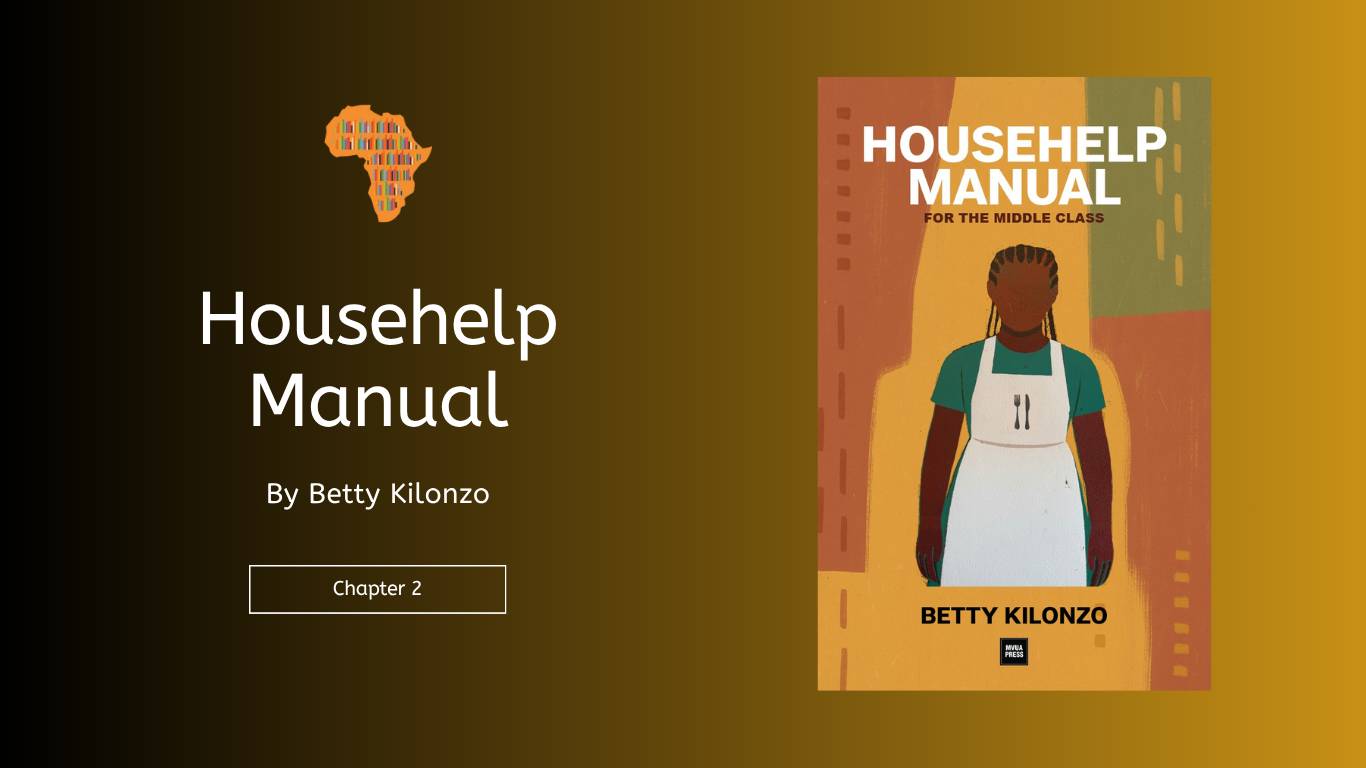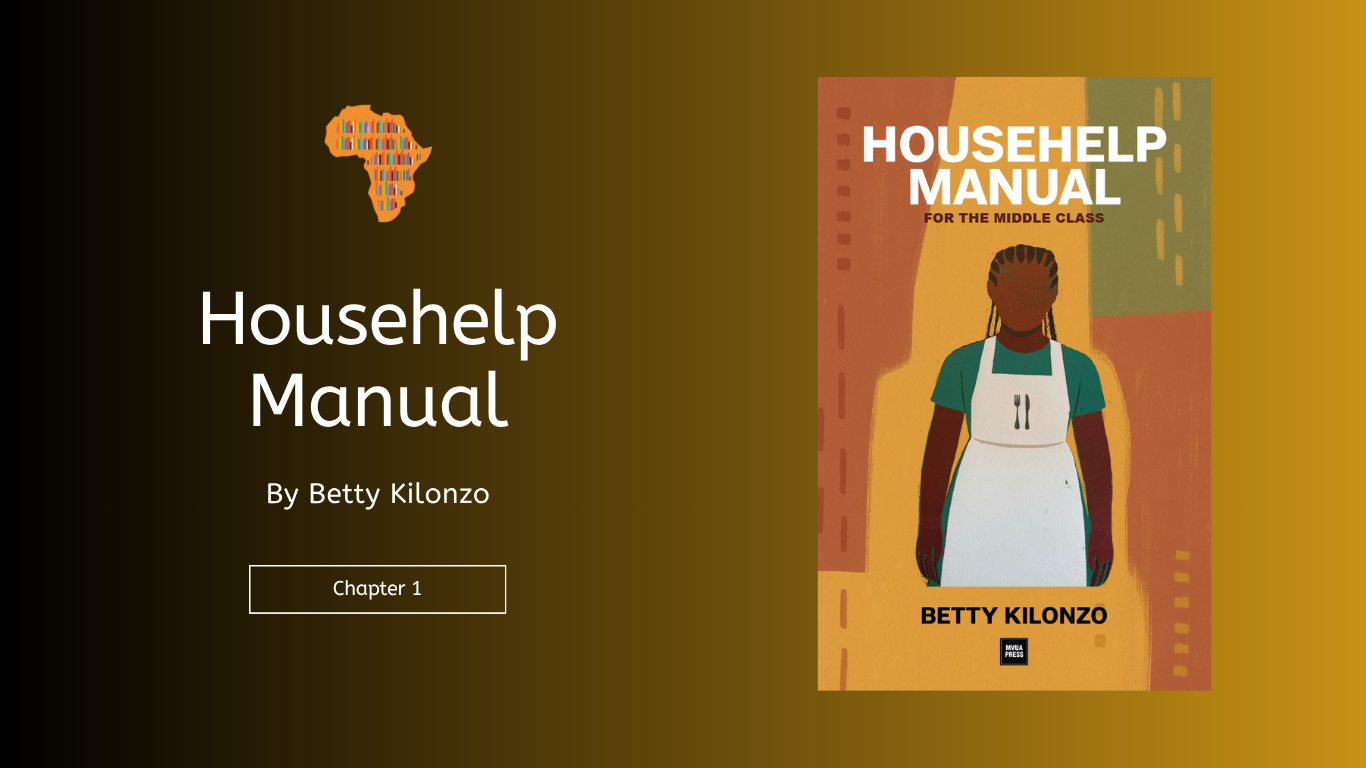

Househelp Manual Part 2
Part 2
In the second instalment of our serialisation of Betty Kilonzo's Househelp Manual, we look at basic rules around the home.
Chapter 2: House Rules & Code of Conduct
Every home functions best when there are clear expectations. House rules are not meant to control but to create harmony and clarity for both the employer and the househelp. They also prevent misunderstandings and protect both parties.
These rules are based on common challenges many families face and are designed to encourage respect, professionalism, and trust.
1. Respect and Honesty
• Treat every member of the household—adults and children—with courtesy and dignity.
• Be honest in all words and actions. Trust is the foundation of this relationship.
• Theft of money, food, or belongings is strictly forbidden and will result in termination.
• Dishonesty—such as blaming children for mistakes or pretending to work only when the employer is present—will not be tolerated.
2. Privacy and Confidentiality
• Household matters must remain confidential.
• Do not discuss family issues with neighbors, share them with outsiders, or leak information to relatives, friends, or partners.
• Maintain boundaries with respect to personal possessions. Do not access the personal belongings of others in the house without permission.
3.Professional Conduct
• Observe working hours as guided by household routines.
• Complete tasks carefully and thoroughly.
• Avoid loud phone use, time-wasting, or sleeping during duty hours. Phone use is limited to breaks.
• Emergencies must be genuine. Repeated unexplained absences for “family crises” will be treated as misconduct.
• Financial Accountability: Any money given for shopping or house-related expenses must be recorded. The househelp should keep a detailed written record of how every shilling is spent, with receipts where possible. This helps with budgeting, prevents suspicion, and cements trust.
4. Respect for Employers and Visitors
• Speak respectfully to all members of the household, including children. Quarreling or harsh language is unacceptable.
• Guests must always be treated with courtesy, regardless of personal feelings.
• Do not display anger or disrespect because of visitors in the home.
5.Cleanliness and Presentation
• Maintain good personal hygiene.
• Keep nails short and clean. Hair should be neat and tied away from the face.
• Avoid makeup, colours, or styles that may interfere with work, compromise hygiene or safety, or be unsuitable for the household environment.
• If a uniform is provided, it must be worn while working and kept clean at all times.
6. Modesty and Grooming
• Dress modestly, avoiding overly revealing or flashy outfits.
• Simplicity is the best presentation. Avoid dressing in a way that creates competition or discomfort in the household.
• Always appear tidy, professional, and approachable.
7. Table Manners and Meal Etiquette
• Meals should be taken in the designated space, not in the kitchen unless agreed.
• Observe proper table manners when eating.
• Do not interrupt or comment on family conversations during mealtime.
8. Skills and Competence
• Cooking must meet acceptable standards of hygiene, taste, and nutrition.
• Maintain high standards of cleanliness in all duties. Poor hygiene is unacceptable.
• Basic literacy and numeracy are required to support children’s homework and make sound shopping or budgeting decisions.
9. Relationship with Children
• Create a nurturing and safe bond with children, not just as a caretaker but as someone they can trust.
• Discipline must never involve shouting, quarrelling, or physical punishment. Firmness can be expressed calmly through clear rules and boundaries.
• Children should feel safe, respected, and supported in the presence of the househelp.
Next week: Employer– Employee Relations & Professional Conduct
Featured Book

Related Book
Get to know more about the mentioned books
Related Article



Househelp Manual Part 2
Part 2
In the second instalment of our serialisation of Betty Kilonzo's Househelp Manual, we look at basic rules around the home.
Chapter 2: House Rules & Code of Conduct
Every home functions best when there are clear expectations. House rules are not meant to control but to create harmony and clarity for both the employer and the househelp. They also prevent misunderstandings and protect both parties.
These rules are based on common challenges many families face and are designed to encourage respect, professionalism, and trust.
1. Respect and Honesty
• Treat every member of the household—adults and children—with courtesy and dignity.
• Be honest in all words and actions. Trust is the foundation of this relationship.
• Theft of money, food, or belongings is strictly forbidden and will result in termination.
• Dishonesty—such as blaming children for mistakes or pretending to work only when the employer is present—will not be tolerated.
2. Privacy and Confidentiality
• Household matters must remain confidential.
• Do not discuss family issues with neighbors, share them with outsiders, or leak information to relatives, friends, or partners.
• Maintain boundaries with respect to personal possessions. Do not access the personal belongings of others in the house without permission.
3.Professional Conduct
• Observe working hours as guided by household routines.
• Complete tasks carefully and thoroughly.
• Avoid loud phone use, time-wasting, or sleeping during duty hours. Phone use is limited to breaks.
• Emergencies must be genuine. Repeated unexplained absences for “family crises” will be treated as misconduct.
• Financial Accountability: Any money given for shopping or house-related expenses must be recorded. The househelp should keep a detailed written record of how every shilling is spent, with receipts where possible. This helps with budgeting, prevents suspicion, and cements trust.
4. Respect for Employers and Visitors
• Speak respectfully to all members of the household, including children. Quarreling or harsh language is unacceptable.
• Guests must always be treated with courtesy, regardless of personal feelings.
• Do not display anger or disrespect because of visitors in the home.
5.Cleanliness and Presentation
• Maintain good personal hygiene.
• Keep nails short and clean. Hair should be neat and tied away from the face.
• Avoid makeup, colours, or styles that may interfere with work, compromise hygiene or safety, or be unsuitable for the household environment.
• If a uniform is provided, it must be worn while working and kept clean at all times.
6. Modesty and Grooming
• Dress modestly, avoiding overly revealing or flashy outfits.
• Simplicity is the best presentation. Avoid dressing in a way that creates competition or discomfort in the household.
• Always appear tidy, professional, and approachable.
7. Table Manners and Meal Etiquette
• Meals should be taken in the designated space, not in the kitchen unless agreed.
• Observe proper table manners when eating.
• Do not interrupt or comment on family conversations during mealtime.
8. Skills and Competence
• Cooking must meet acceptable standards of hygiene, taste, and nutrition.
• Maintain high standards of cleanliness in all duties. Poor hygiene is unacceptable.
• Basic literacy and numeracy are required to support children’s homework and make sound shopping or budgeting decisions.
9. Relationship with Children
• Create a nurturing and safe bond with children, not just as a caretaker but as someone they can trust.
• Discipline must never involve shouting, quarrelling, or physical punishment. Firmness can be expressed calmly through clear rules and boundaries.
• Children should feel safe, respected, and supported in the presence of the househelp.
Next week: Employer– Employee Relations & Professional Conduct
 Delete
Delete

